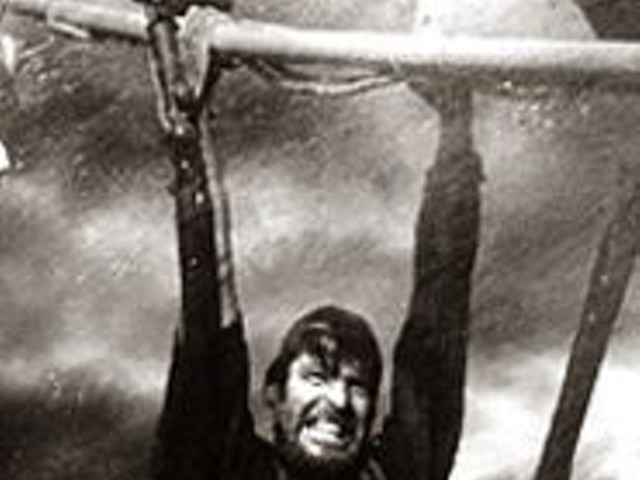That this dramatic moment comes from a man who was swearing off war and violence about an hour earlier makes it just that much more of a thrill: It's the sort of thing that epic films (hell, books too) are made of. Before all you peace-lovers get too worked up, however, let's remember that virtually every action movie justifies gun use. This is just the latest in a well-traveled genre, and it's every bit as sentimental and chain-jerking as you'd imagine. It also works like a charm. All the marks are hit in obvious fashion, but you fall for them nonetheless. Factor in an opening weekend six days from July 4, and you know this film's gonna be packing them in.
For maximum enjoyment, however, it helps to forget about historical accuracy. Ignore, for instance, the depiction of prewar Charleston, S.C., as a city of streets covered in mud, yet not numbering among its citizens a single individual with less than shiny white socks. Ignore the misspelling of Thomas Paine's name in Martin's newspaper. Ignore the fact that Benjamin Martin owns a big estate in the South, yet all the blacks working on it are being treated well and paid a fair wage (this despite the fact that Martin is reputedly based on Francis Marion, a notorious racist who raped his slaves and hunted the Cherokee for sport). Oh, and ignore the fact that all of six people in the entire film speak with a Southern accent. Once you can do that, there's much fun to be had.
"I'm a parent," says Martin, when an old military colleague tries to recruit him to fight for freedom on principle, "I haven't got the luxury of principles." Naturally it's his role as a parent that will eventually suck him in. He can't stop his eldest son, Gabriel (10 Things I Hate About You's Heath Ledger), from signing up to impress the ladies, but when Gabriel is captured by the dastardly Col. Tavington, things change. There's a plea for clemency, as Martin insists that couriers (of which Gabriel is one) cannot be held as POWs by the enemy under the rules of war. Tavington's curt response: "Well, we're not going to hold him, we're going to hang him." The next-eldest son protests and is promptly killed for doing so. And we all know what happens to Mel Gibson when the baddies lay their hands on a family member. It's Mad Max time.
Strapping on the guns and wielding a mean Cherokee tomahawk, he leads his two remaining sons on a head-smashing rescue mission to save Gabriel. But even when that's done, he still doesn't want to join the army, at least until his homestead is burned to the ground and Gabriel insists on going back into the fray. "You've done nothing for which you should be ashamed" says sister-in-law Charlotte after Martin teaches his young boys how to kill. "I've done nothing, and for that I am ashamed," he replies, at which point we know some serious blood is about to be spilled. Before long, he and Gabriel are rounding up a militia and teaching the English -- who fight mostly by a strict set of rules -- a thing or two about guerilla warfare.
There are some rather silly interludes, including a recurring metaphor about Martin's late wife and the North Star, and a gag about drinking ink that is drawn out way too long, but otherwise screenwriter Robert Rodat has done an effective job of transposing his Saving Private Ryan screenplay to colonial times (accompanied once more by an overbearing John Williams soundtrack), complete with graphic shots of cannonballs taking people's limbs off. And though many might be put off by the mere mention of director Roland Emmerich (Godzilla), the fact is, he knows how to make a good image. It's just that his usual screenwriter, Dean Devlin, can't write worth a damn. Subtract Devlin from the story equation (he gets only a producer credit here) and the problem is mostly solved, although Emmerich still can't seem to get a handle on women. As in every one of his American films save for Universal Soldier, the female lead is an uninteresting plot device rather than an actual character.
Still, this is a testosterone movie, and the women will probably be happy staring at Mel. Emmerich seems to fetishize the U.S. military in all his films (think of Kurt Russell in Stargate, Bill Pullman and Will Smith in ID4, Doug Savant in Godzilla), so the story of the original U.S. military is a natural for him. And Gibson turns in a great performance, closer to his brooding, wronged heroes of the '80s than the ego-tripping of Braveheart. His children look a little squeaky-clean for the period, especially their gleamingly perfect teeth, but what did I say earlier? Forget about historical accuracy. See this movie, then go home, raise the flag, set off some fireworks and char some meat. God bless America.
Opens June 28.





